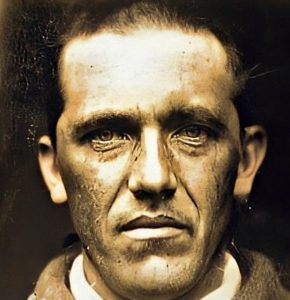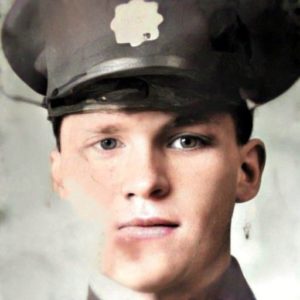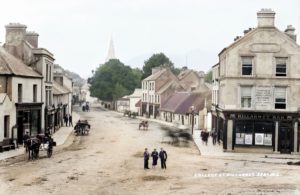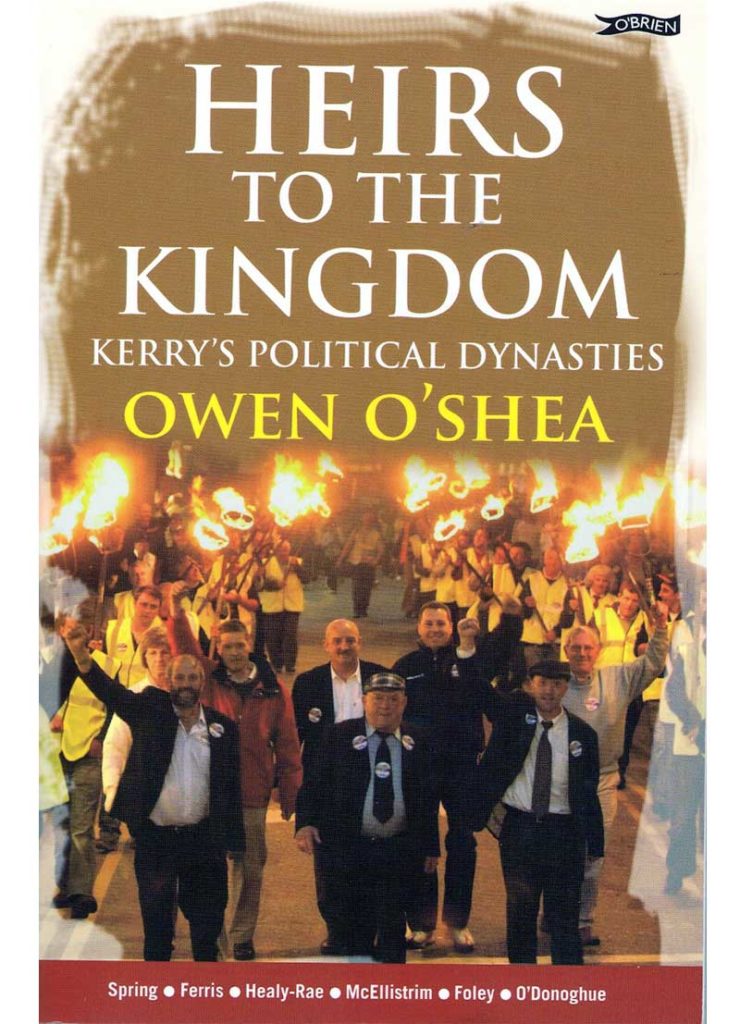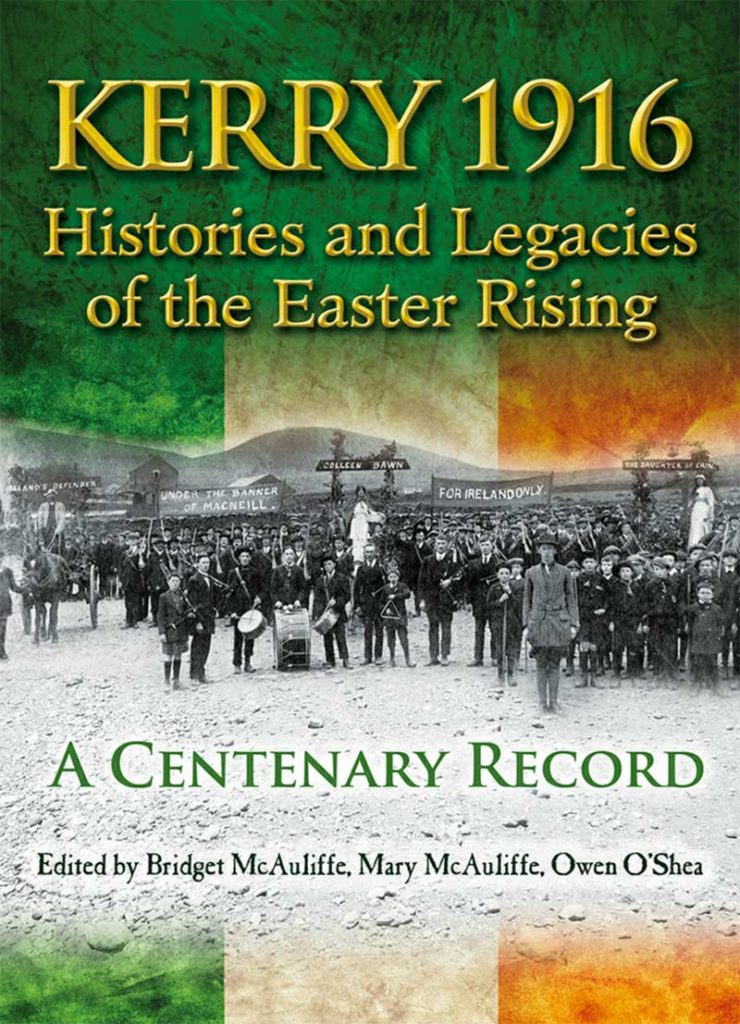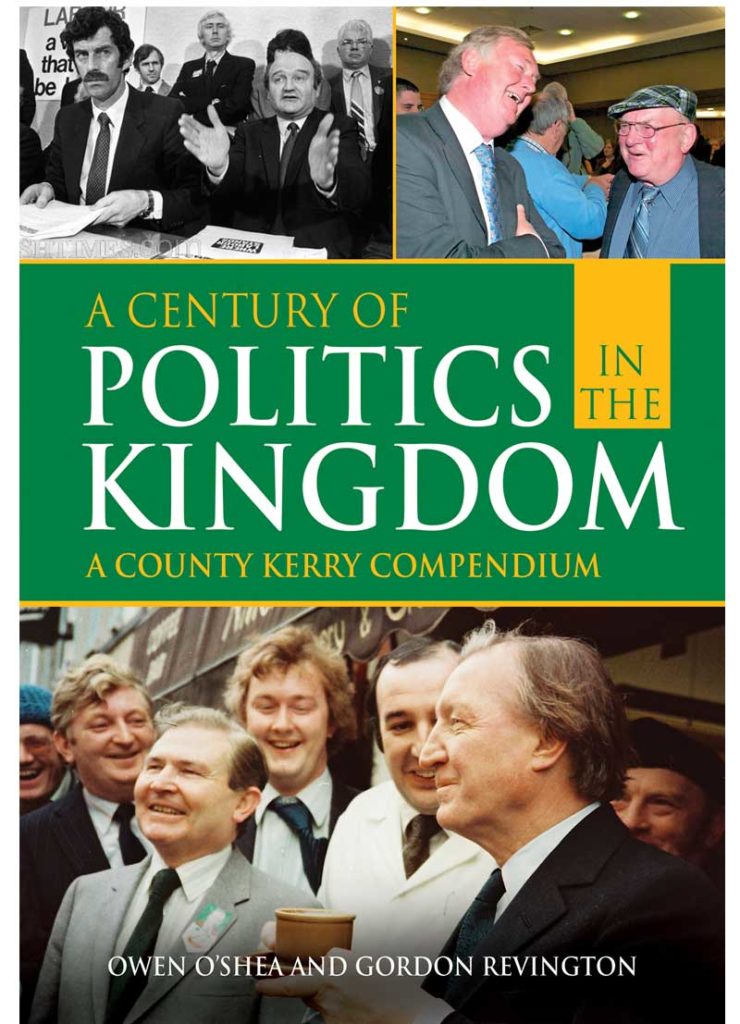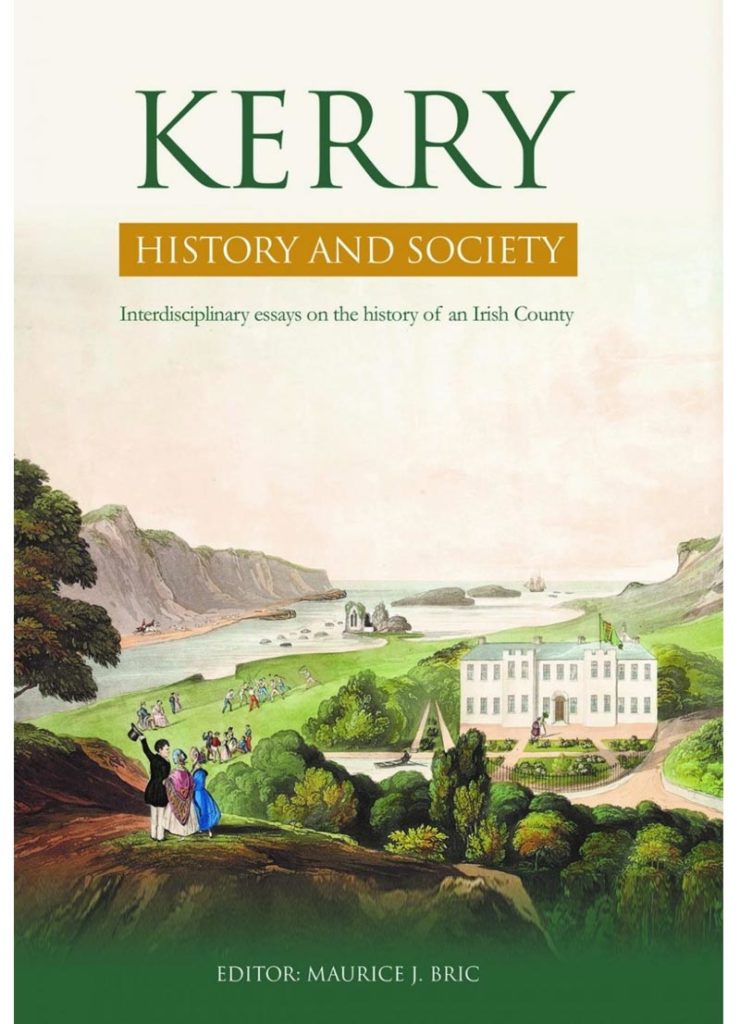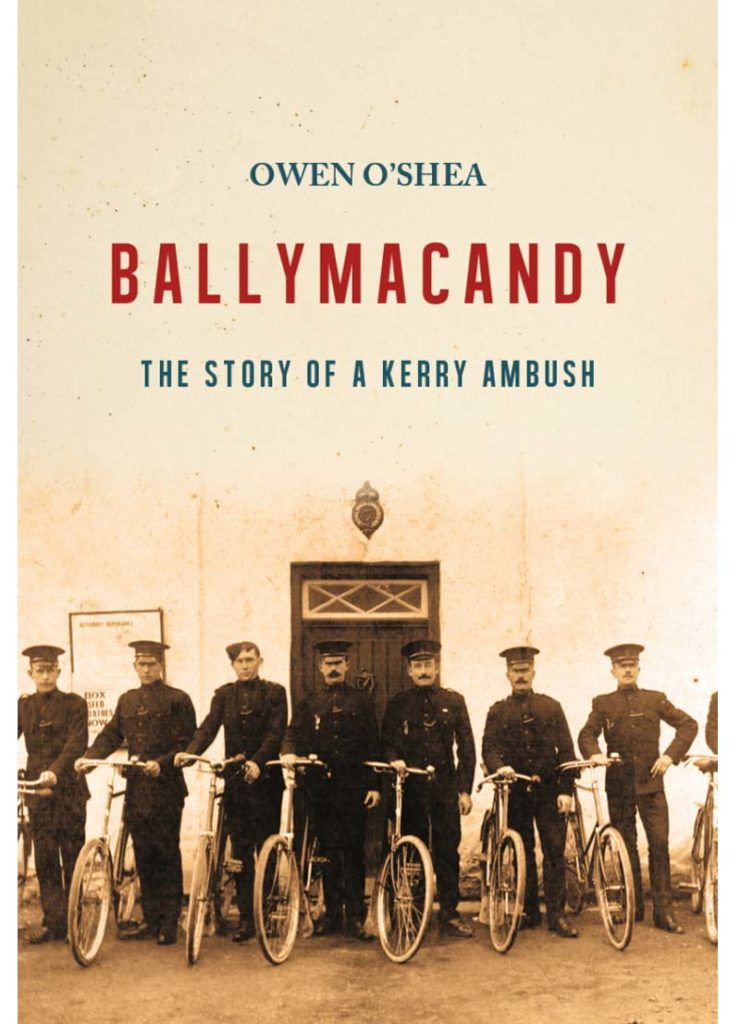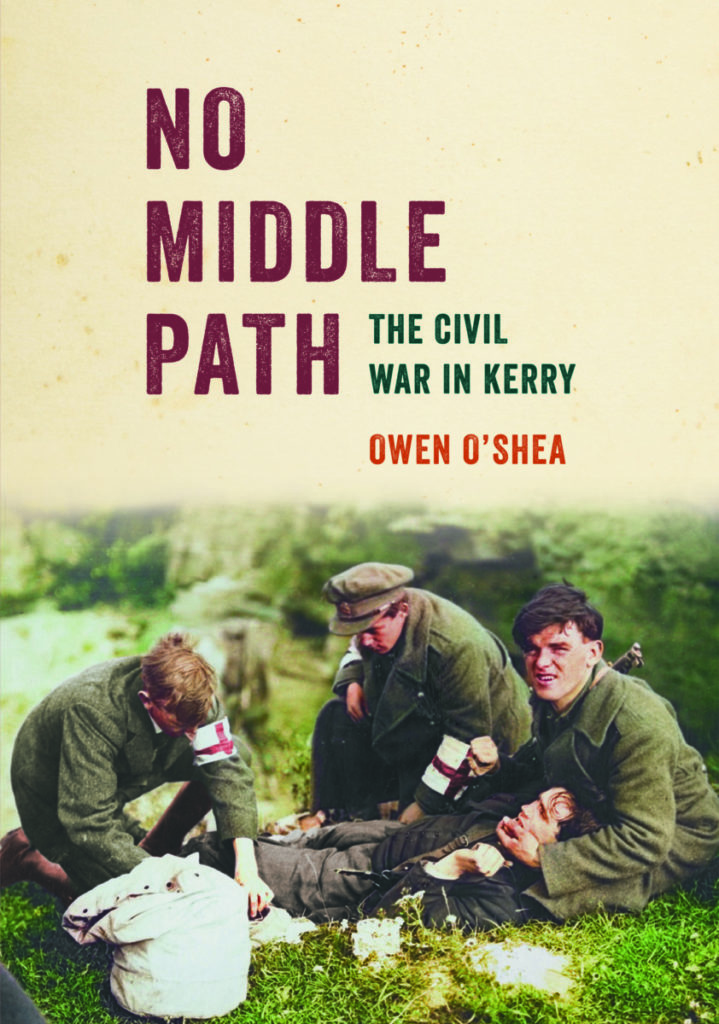The extraordinary tale of bribery and booze during the County Council election of 1908
When proceedings began at the courthouse in Castleisland at one o’clock on a warm summer afternoon in 1908, the room was described as being ‘packed to suffocating point and the windows had to be thrown open.’[i] A large crowd, including several journalists, had gathered to hear a series of dramatic and sensational charges against the recently re-elected county councillor, John Kerry O’Connor, who was being accused by his election opponent, Denis J Reidy of winning his seat in the Castleisland Electoral Division through a litany of illegality and corruption. Among the charges brought against Councillor O’Connor were ‘bribery, corruption and intimidation of the greatest character, general treating, public houses kept open in every part of the constituency, and free drinks supplied’ to voters during the election campaign.
The presiding magistrate, Commissioner Maxwell, was told that, because of the way O’Connor had procured many of the votes he received, Reidy was seeking his unseating by order of the court. Reidy also wanted the result of the recent election to Kerry County Council held in the Castleisland Electoral Division to be declared void. John Kerry – better known as JK – O’Connor, was a prominent Castleisland businessman and a Justice of the Peace who presided over the Petty Sessions court hearings in the district. Ironically, given what was to follow, O’Connor had presided over a court hearing in which fourteen men were charged in connection with a brawl in Ranalough near Currow during the 1906 parliamentary election campaign when an electioneer and a local constable sustained injuries.[ii]
O’Connor was no political novice. He had been a member of the Tralee Board of Guardians and elected a member of the first Kerry County Council in April 1899 representing the single-seat electoral division of Castleisland. In that poll, there had been a contest for the only seat available. Redmond Roche of Maglass, also a Justice of the Peace, had been declared elected by a margin of just three votes. An immediate recount sought by O’Connor produced the same result: 469 for Roche and 466 for O’Connor. On the day after the count however a ballot paper was found on the floor of the Grand Jury Room in Tralee where voting had occurred. A recount was sought again, and all the ballots were examined by the local Under Sheriff, TC Goodman and legal representatives.
The newly discovered paper was found to be valid as it bore the official stamp. O’Connor was duly elected with one vote to spare over Roche.[iii] O’Connor was a high-profile supporter of John Murphy, MP for East Kerry, in his political battles with his nemesis, Eugene O’Sullivan. The court hearing was told that O’Connor was a man of influence: a draper, a meal and flour merchant, a creamery proprietor and auctioneer who ‘had business dealings with the great bulk of the electorate, a great many of whom were deep in his books.’[iv]
O’Connor retained his seat in the council elections of 1902 and 1905. He served on several local authority committees including the Asylum Committee and was a member of the Tralee and Fenit Pier and Harbour Commissioners. At the 1908 poll which has held on 3 June, O’Connor was challenged, however, for the single seat on offer, by another local businessman, Denis J Reidy. Reidy was active in the Irish Land and Labour Association and had strong political support in the division. O’Connor prevailed by 555 votes to Reidy’s 525 and he was declared elected by the returning officer, Maurice Moynihan.
Reidy moved immediately to have the result declared void. The losing candidate believed that he sufficient evidence to prove that the victor had achieved the result by illegal means. The court petition led to a sensational ten-day court hearing in which Castleisland was portrayed as being drowned in alcohol on a Bacchanalian scale, and rife with bribery, intimidation and political corruption. It was hardly any wonder that the courthouse was packed to capacity as the evidence began.
+++
‘intimidation of the greatest character’
The Castleisland case opened on Tuesday, 25 August 1908 at Castleisland courthouse before Commissioner Maxwell. Denis J Reidy, the petitioner, was represented by his solicitor, David Roche instructing Serjeant John Francis (JF) Moriarty, King’s Counsel – from Mallow and well-known in political circles – and junior counsel, Bernard Roche. JK O’Connor, the respondent, was represented by solicitor, RC Meredith who instructed AM Sullivan, King’s Counsel – later a member of Sir Roger Casement’s defence team when he was tried for treason in 1916 – and EJ (Ned) McElligott, his junior (later a Circuit Court judge and whose family owned the Listowel Arms Hotel). The returning officer for the poll was Maurice Moynihan who was represented in court by Joseph Mangan, solicitor.
The court would hear allegations that JK O’Connor had won his seat on the county council by bribing voters, supplying them with drink and intimidating voters into supporting him. Barrels of porter had been placed at polling stations and personation and ‘gross rowdyism’ was used to disrupt Reidy’s election rallies. O’Connor’s wife, Hanoria was one of his principal and ‘most active’ agents, and had distributed whiskey to voters on the canvass and had driven many voters to the polls on polling day. One voter alleged that she had received a shilling from Mrs O’Connor in return for a promise to vote for her husband. A few days before polling, witness Jeremiah McMahon described being canvassed by the O’Connors:
JK and his wife went into the house. He asked for a vote, and witness said he would give it to him. “He asked me on the road would I take a drink of whiskey … and I said I would. Mrs JK was there. I drank out of a tumbler with a handle on it. Mr O’Connor filled out the whiskey and I drank it.” (Laughter). That was about the 26 May.
‘terrorism’ of O’Connor’s supporters
The second day of the case opened with the sensational claim by Denis Reidy’s counsel, Serjeant Moriarty that on leaving the courthouse the previous evening, ‘three witnesses for the petitioner were beaten’ and had been subjected to ‘terrorism’ by O’Connor’s supporters. A man had been arrested and the Commissioner warned that there could be no repetition of such behaviour. The long line of witnesses continued. Before voting at Knocknagoshel, witness Timothy Warren claimed to have been offered a ‘quarter of ground free for the year,’ by an associate of O’Connor’s. Another man, Thomas Leane claimed to have been offered a free return ticket to America. Several witnesses reported receiving but not paying for drink on the day of the election:
Michael Culloty deposed, in reply to Sergt Moriarty, that he lived about a mile from Castleisland. He voted at that election. He remembered the Sunday Mr Reidy was holding his meeting. On that day witness was in Mr JK O’Connor’s yard in the evening. Before he went into the yard, he was in the kitchen. He got whiskey from the servant girl. The kitchen was full and they were all getting whiskey … He had two pints of porter in the yard … It was taken from a barrel … Witness did not pay for the porter or whiskey nor did he see anybody paying for it. They all got porter.[vi]
Culloty claimed he was told by Mrs O’Connor that she ‘would leave a pint for me every day for six months’ whereas Denis Reidy had only ordered one pint for him at some point before the election. Michael Brosnan told the court that he voted at Curranes and that prior to polling day, Mrs O’Connor came to his house to ask for his vote. There was drink available at the polling station:
Did you get drunk there? – There was drink all over the place [laughter]. I got drunk there anyway [more laughter].
In further examination, he said he got drink from Thomas Griffin, a son of Patrick Griffin’s, Mr O’Connor personating agent. He didn’t see Maurice O’Connor, high nor dry, at the barrel of porter [laughter].
Mr Serjeant Moriarty – Nobody was dry that day [laughter].
Witness – The day was dry, sir. [loud laughter].[vii]
‘a gallon of whiskey’
A Mrs Murphy was working in the O’Connor’s kitchen on the Sunday evening prior to the election. She said Dan Murphy, a local publican was there and was in charge of a barrel of porter which had come from Hartnett’s bar nearby. ‘She could not tell what time it (the barrel) was brought. She was in and out of the house during the day. How did it come in, “it didn’t walk”’ in, questioned Counsel.
Witness said she did not know.
Did you see whiskey given out in the kitchen? – Yes.
You had a bottle of whiskey? – Yes.
Did you know everyone you gave whiskey to? – I knew them at the time.
How many did you give whiskey to, thirty or forty? – Yes, the people that came from Brosna.
The porter came from Hartnett’s; did Hartnett come with it? – I could not tell you.
Who told you to order it? – I ordered it myself (sensation in court)
Who authorised you? I know the men were coming in on Sunday and I went to Mr O’Connor and asked him what would I get. He told me to get whatever I wanted.
What did you order? – A half tierce[viii] of porter and a gallon of whiskey … I knew Mr O’Connor was holding a meeting in Brosna. There were a number of supporters with him. It was for the purpose of giving refreshments to the people that went to Brosna that I ordered the porter and whiskey in.[ix]
For more see: A Century of Politics in the Kingdom: A County Kerry Compendium – Owen O’Shea (owenoshea.ie)
[i] Kerry People, 29 August 1908
[ii] Kerry Evening Post, 10 March 1906
[iii] Kerry Sentinel, 12 April 1899
[iv] Kerry Weekly Reporter, 29 August 1908
[v] Kerry Weekly Reporter, 12 August 1911
[vi] Kerry People, 5 September 1908
[vii] Ibid.
[viii] A tierce measured approximately 160 litres, the contents of a barrel.
[ix] Ibid.





